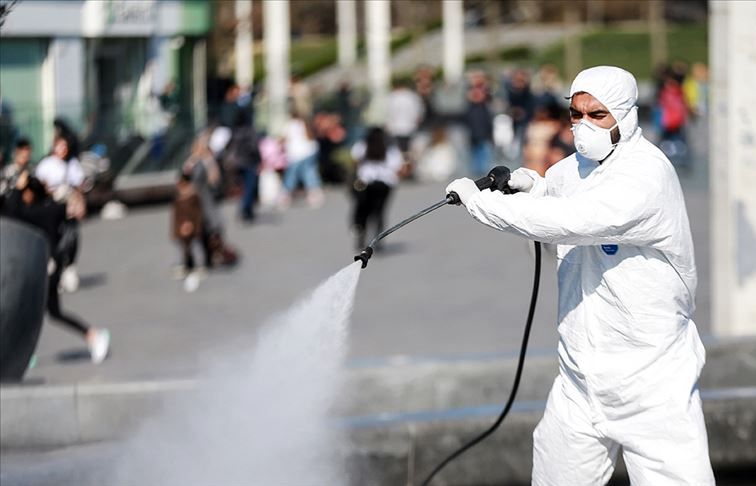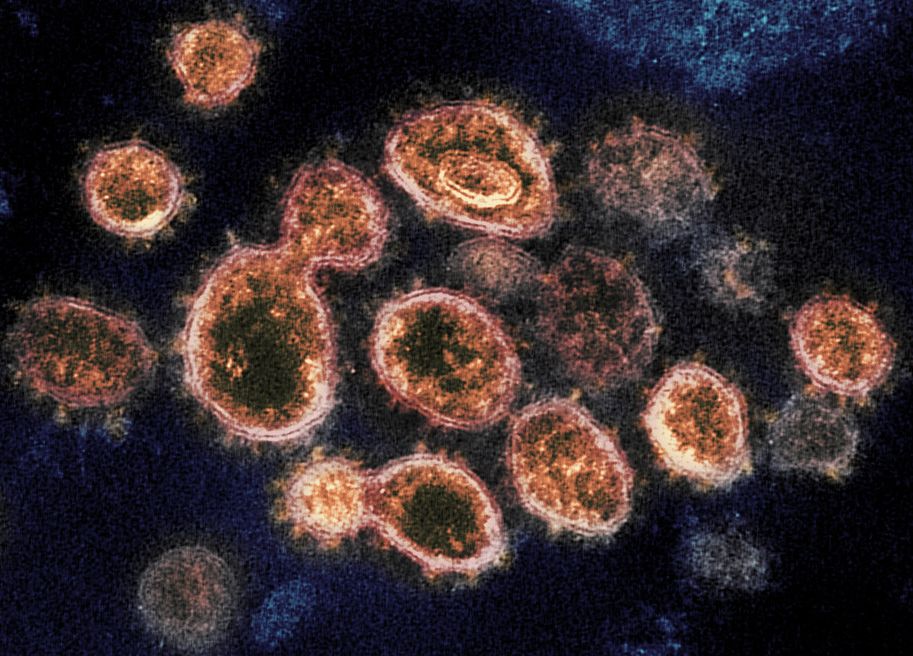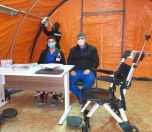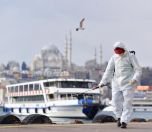Photo: AA
Click to read the article in Turkish / Kurdish
The number coronavirus cases in Turkey doubled in less than one week, reaching 42,282, the Health Ministry announced today (April 9).
The country has recorded 4,056 new cases since yesterday's update, the highest inreace in a day. The death toll increased by 96 to 908.
Daily number of tests has also been increasing in Turkey as 28,578 people were tested for Covid-19 while the total number of tests stood at 276,338.
CLICK - Turkish Medical Association: Turkey Does Not Report All Covid-19 Deaths
The number of patients in intensive care also slightly increased to 1,552 with 1,017 intubated patients and 2,142 people have recovered from the disease.
Health Minister Fahrettin Koca noted in a tweet that despite the rising number of tests, the rate of daily rise in the number of cases was dropping and urged everyone to continue to stay at home.
26 thousand people penalized for violating quarantine orders
Interior Minister Süleyman Soylu announced that a total of 138 thousand citizens in 180 locations have been quarantined across the country. Though the government has not imposed a lockdown on entire cities, it has quarantined neighborhoods and villages in various parts of the country to curb the spread of the virus.
Penalties were imposed on 26 thousand people who violated the lockdown orders, he noted. In addition to quarantining settlements, the governent has imposed a curfew for people older than 65 and younger than 20.
CLICK - Turkey Launches 'China-Style' Coronavirus Tracker
He said 85-90 percent of the people was isolating themselves on weekdays across major cities, the most affected parts of the country. Soylu went on to say 10 million masks were being distributed every day, and the same amount was being produced.
The novel coronavirus outbreak began in China's Wuhan city in December 2019. It has now spread to at least 180 countries and territories, infecting more than 1.5 million people and killing nearly 90 thousand, according to data compiled by Johns Hopkins University in the US. Over 340 thousand people have recovered from the disease. The US, Italy, China, Iran and Spain have been the hardest hit countries.
CLICK - All Updates on Turkey's Coronavirus Tally
| About the novel coronavirus What is a coronavirus? Coronaviruses are a large family of viruses which may cause illness in animals or humans. In humans, several coronaviruses are known to cause respiratory infections ranging from the common cold to more severe diseases such as Middle East Respiratory Syndrome (MERS) and Severe Acute Respiratory Syndrome (SARS). The most recently discovered coronavirus causes coronavirus disease Covid-19. The virus was named SARS-CoV-2 by the International Committee on Taxonomy of Viruses.
What is Covid-19? Covid-19 is the infectious disease caused by the most recently discovered coronavirus. This new virus and disease were unknown before the outbreak began in Wuhan, China, in December 2019. What are the symptoms? Covid-19 symptoms include cough, fever, shortness of breath, muscle aches, sore throat, unexplained loss of taste or smell. How does Covid-19 spread? People can catch Covid-19 from others who have the virus. The disease can spread from person to person through small droplets from the nose or mouth which are spread when a person with Covid-19 coughs or exhales. These droplets land on objects and surfaces around the person. Other people then catch Covid-19 by touching these objects or surfaces, then touching their eyes, nose or mouth. Studies to date suggest that the virus is mainly transmitted through contact with respiratory droplets rather than through the air. How did the outbreak begin? Although health officials are still tracing the exact source of this new coronavirus, early hypotheses thought it may be linked to a seafood market in Wuhan. Some people who visited the market developed viral pneumonia caused by the new coronavirus. A study that came out on January 25, 2020, notes that the individual with the first reported case became ill on December 1, 2019, and had no link to the seafood market. Investigations are ongoing as to how this virus originated and spread. Sources: World Health Organization, Johns Hopkins University |
(VK)












